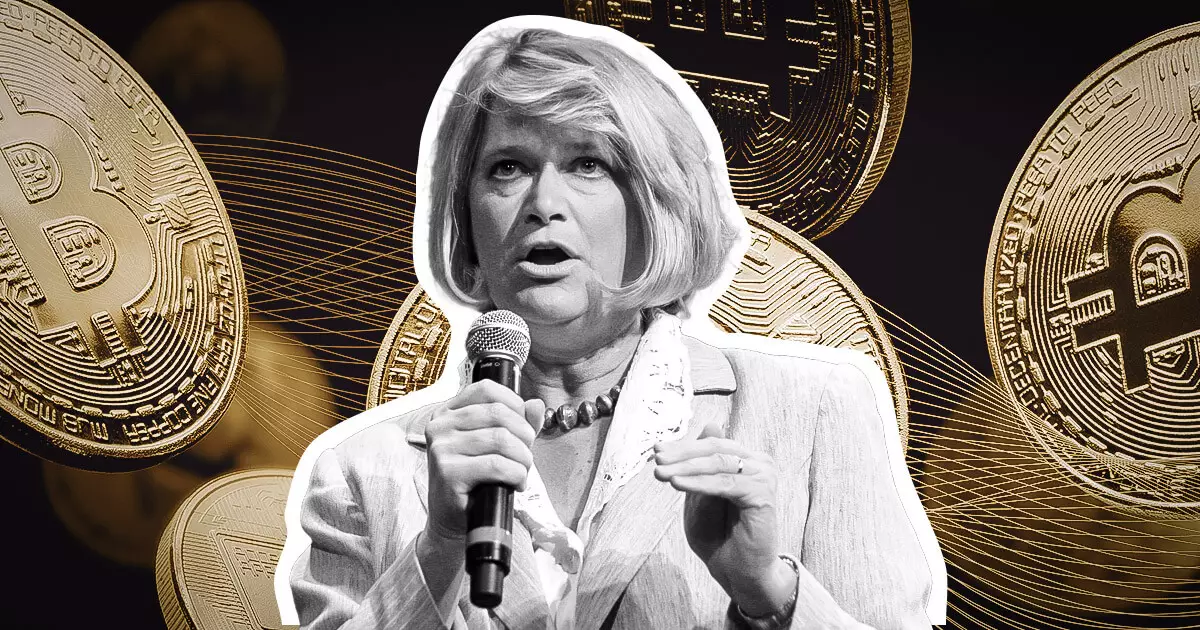In a bold move, Senator Cynthia Lummis has taken to addressing the complex interplay between digital asset management and regulatory transparency within the United States government. With recent developments surrounding the proposed liquidation of 69,370 Bitcoins connected to the notorious Silk Road, Lummis has raised significant concerns regarding the potential financial ramifications of this decision, along with allegations of misconduct within the Federal Deposit Insurance Corporation (FDIC).
Lummis’ correspondence to Ronald L. Davis, Director of the U.S. Marshals Services (USMS), reflects a palpable urgency. She questions the reasoning behind the proposed sale, emphasizing the profound implications it holds for the U.S. economy and its future generations. According to Lummis, these Bitcoins represent not just an asset, but an opportunity to bolster America’s financial portfolio at a time when global economic dynamics are increasingly uncertain. She articulates a vision where holding onto these digital assets could provide a financial buffer and strategic advantage for years to come, challenging the notion that immediate liquidation is necessary or prudent.
Moreover, Lummis highlights past failures in asset management by the USMS, arguing that previous sales of Bitcoin have led to substantial taxpayer losses. The staggering statistic that 195,092 BTC sold from 2014 to 2023 for a mere $366.5 million—now valued at a jaw-dropping $18.9 billion—serves as a poignant reminder of the risks associated with hasty decisions regarding digital assets. This situation places a spotlight on the necessity for the U.S. government to reassess its approach towards asset management, particularly concerning rapidly evolving technologies like cryptocurrency.
Interestingly, Lummis’ letters draw attention to a paradox in the current policy landscape of the U.S. government. She points out a contradiction between the impending liquidation of Bitcoin and President-elect Donald Trump’s previous proposal for creating a “National Bitcoin Stockpile.” This policy—a strategic initiative to retain all Bitcoin held by the government—stands in stark contrast to the plans for immediate sales, illustrating a potential disconnect that could undermine U.S. financial sovereignty. By aligning with strategic foresight rather than reactive measures, Lummis argues that the U.S. could build a more secure financial future.
The senator also criticized the Department of Justice (DOJ) for its justification of the urgent sale based on cryptocurrency price fluctuations. She posits that this justification overlooks the importance of long-term stability and is reflective of insufficient planning, especially during a sensitive transitional period in governance. This fleeting approach does not only risk immediate financial losses but could hinder the nation’s adaptability to cryptocurrency’s evolving landscape.
In a separate but equally alarming letter addressed to Marty Gruenberg, Chair of the FDIC, Lummis raises allegations concerning destruction of vital documents and reported intimidation of staff within the agency. This revelation of internal misconduct raises serious concerns about transparency and accountability, particularly in an era where digital assets are becoming increasingly central to financial policy.
Lummis demands that all materials related to the FDIC’s digital asset activities be preserved, including records concerning the supervision of cryptocurrency-related banks such as Signature Bank and Silvergate Bank. She categorically condemns any actions that would compromise the integrity of oversight, stressing that the destruction of official documents is intolerable. The senator’s insistence on preserving communication regarding digital asset policies underlines the complexity and urgency of navigating regulatory frameworks in an emerging economic landscape.
Senator Lummis’s actions serve as a rallying cry for increased scrutiny and strategic planning in managing the government’s digital assets. As the discourse around cryptocurrencies continues to evolve, Lummis’s concerns echo the necessity for a balanced approach that fosters innovation while safeguarding public interests. The implications of her letters extend beyond immediate financial considerations, touching the core of national economic strategy and integrity in governance.
Her dual advocacy for preserving digital assets and ensuring transparency within regulatory bodies represents a crucial dialogue in a world that is increasingly leaning towards decentralized finance. The outcome of this discourse will ultimately shape the U.S.’s position in the global cryptocurrency market and its ability to adapt to the digital future.



















Leave a Reply